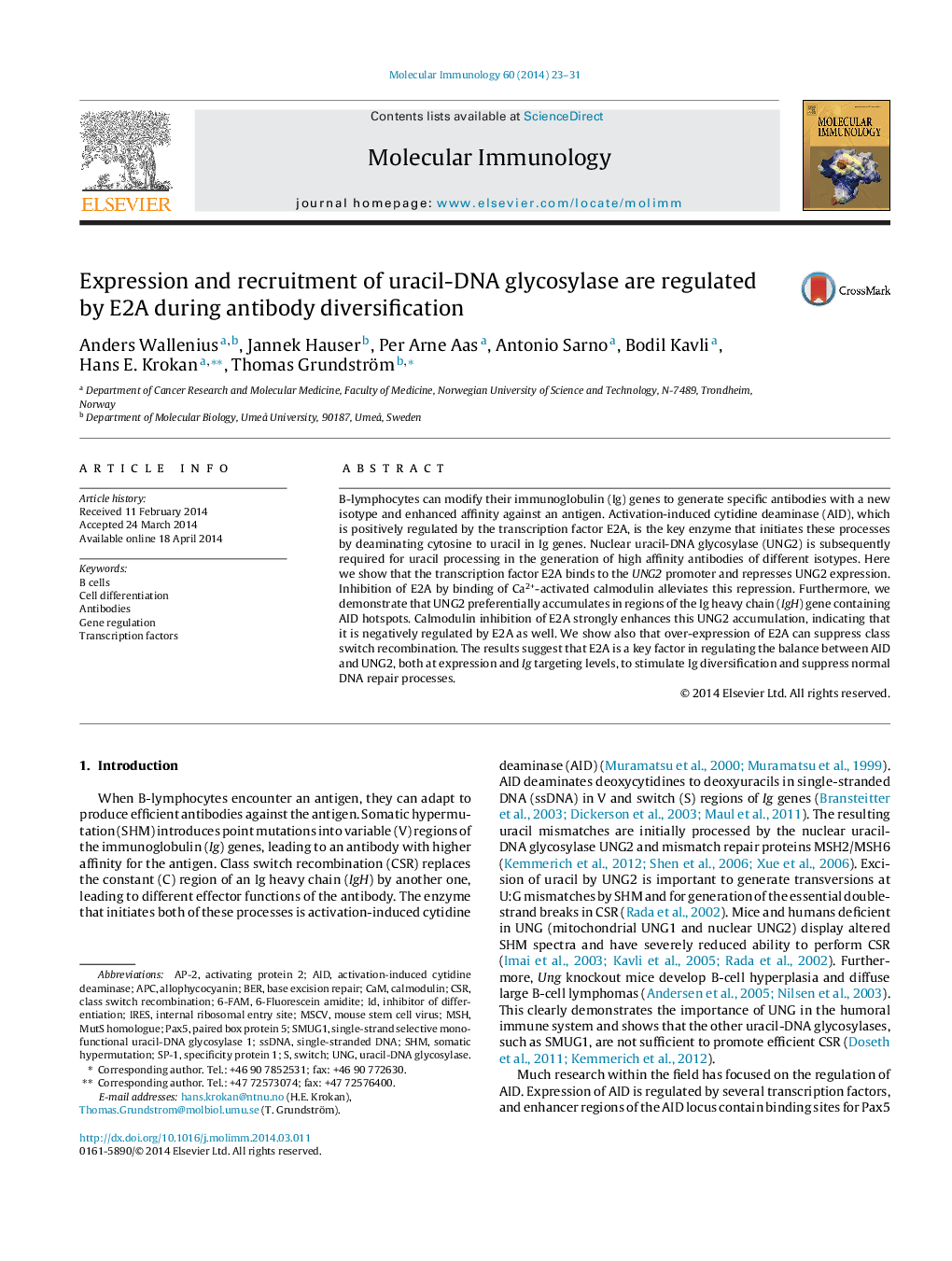| Article ID | Journal | Published Year | Pages | File Type |
|---|---|---|---|---|
| 2830835 | Molecular Immunology | 2014 | 9 Pages |
•E2A binds to the UNG2 promoter and represses expression of UNG2.•UNG2 preferentially accumulates in regions of the IgH gene containing AID hotspots.•Data indicate that this UNG2 accumulation is negatively regulated by E2A as well.•Over-expression of E2A can suppress class switch recombination.•The results suggest that E2A is regulating the balance between AID and UNG2.
B-lymphocytes can modify their immunoglobulin (Ig) genes to generate specific antibodies with a new isotype and enhanced affinity against an antigen. Activation-induced cytidine deaminase (AID), which is positively regulated by the transcription factor E2A, is the key enzyme that initiates these processes by deaminating cytosine to uracil in Ig genes. Nuclear uracil-DNA glycosylase (UNG2) is subsequently required for uracil processing in the generation of high affinity antibodies of different isotypes. Here we show that the transcription factor E2A binds to the UNG2 promoter and represses UNG2 expression. Inhibition of E2A by binding of Ca2+-activated calmodulin alleviates this repression. Furthermore, we demonstrate that UNG2 preferentially accumulates in regions of the Ig heavy chain (IgH) gene containing AID hotspots. Calmodulin inhibition of E2A strongly enhances this UNG2 accumulation, indicating that it is negatively regulated by E2A as well. We show also that over-expression of E2A can suppress class switch recombination. The results suggest that E2A is a key factor in regulating the balance between AID and UNG2, both at expression and Ig targeting levels, to stimulate Ig diversification and suppress normal DNA repair processes.
